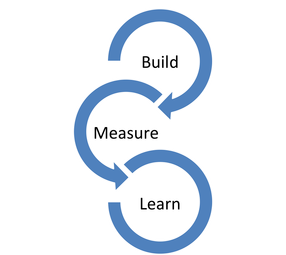Mission: Impact podcast & blog
Build a better world without becoming a martyr to your nonprofit cause
Listen on:
 An influential volunteer has an idea within your nonprofit organization. They just came back from a conference and heard about an initiative another organization is doing. They think it would be perfect for your organization. When they describe the idea it sounds really intriguing. There is revenue potential and it promises to more fully engage your constituents. Your board and/or senior staff have a conversation about the idea and decide a staff person should put together a business plan. The staff person works on it and the projections look really promising. A staff team is pulled together and their other projects are put on the back burner. As the initiative gets closer to launch, a communications and marketing plan is put together. The initiative launches with lots of internal fan fare. And then…. What went wrong? Crickets. Very few people enroll. Internal discussion concludes that it must be the messaging. Marketing messages are tweaked and a new set of email blasts are designed and scheduled. But interest and enrollment remain low. What went wrong? Lean Start Up The lean start up approach is designed to address this common problem. People falling in love with their own ideas, settling on a wonderful sounding solution without really understanding the problem they are solving for the members or constituents they are trying to serve. Eric Ries created the method with the intent to shift entrepreneurs energy from developing elaborate business plans to ‘getting out of the building” and testing their assumptions with customers. Because it focuses on managing risk and conserving resources it is a good fit for resource poor nonprofits. Build, Measure, Learn  Lean start up helps you answer the question – how do we know what is actually worth working on? Based on three major steps – build, measure, learn, you create a minimally viable product instead of a business plan; identify assumptions by asking the question – what needs to be true for this to be a good idea and then design brief experiments to test these assumptions. Once the experiments are complete and you assess your results and learn from it. Does the evidence point to continuing with your idea as is? Or do you need to pivot? Or do you perhaps need to drop the idea and not expend any further resources on it? Experiments In the example above, instead of proceeding with a business plan and then immediately into launching a project team to build out the idea, the team would instead identify the assumptions inherent in the idea and then design experiments to test these assumptions with customers. Unearthing Your Assumptions Where traditional program design approaches have emphasized careful and lengthy planning, lean start up emphasizes experiments. In the past, new ideas were often based on intuition and anecdotes. Unfortunately these hunches were rarely tested with the audience they were designed for. Instead lean start up moves from an idea to gathering feedback almost immediately. Like the example at the beginning, many organizations have emphasized the ‘big launch’ after a closed or even secret design process. Lean start up focuses on the iterative process – getting feedback quickly and learning from it.
Think this might be a good approach for your organization and want to learn more? Get in touch with me for a complementary coaching session. 6/27/2021 02:29:25 am
How do we know we are doing the right thing? I think to myself when working with a relaxed spirit, always happy, means doing the right thing. 7/1/2021 01:49:37 pm
I love this perspective. When you are in flow, that is the right next thing. Comments are closed.
|
Categories
All
Archives
July 2024

Grace Social Sector Consulting, LLC, owns the copyright in and to all content in and transcripts of the Mission: Impact podcast, as well as the Mission: Impact blog with all rights reserved, including right of publicity.
|
Telephone301-857-9335
|
info[at]gracesocialsector.com
|
Grace Social Sector Consulting, LLC, owns the copyright in and to all content in, including transcripts and audio of the Mission: Impact podcast and all content on this website, with all rights reserved, including right of publicity.
|